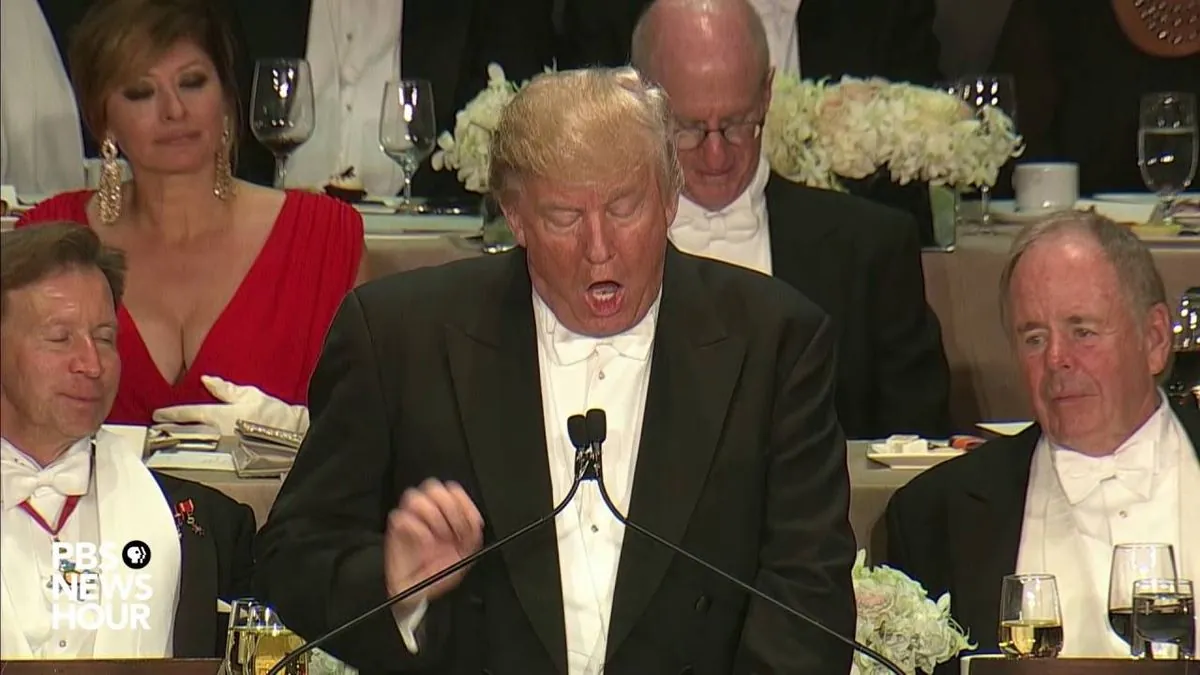In a significant departure from tradition, the upcoming Al Smith charity dinner in New York will feature Donald Trump as the sole keynote speaker, while Vice President Kamala Harris has chosen to focus on campaigning in battleground states. This development marks a shift in the event's typical bipartisan nature, which has been a hallmark of presidential campaigns for decades.
The Al Smith dinner, named after Alfred Emanuel Smith, the first Catholic nominee for President of the United States, has been an annual fixture since 1945. Organized by the Alfred E. Smith Memorial Foundation, the event traditionally raises millions for Catholic charities and is known for its white-tie dress code and lighthearted political banter.
Donald Trump confirmed his participation through a post on Truth Social, a platform launched in 2022. He expressed disappointment at Harris' decision to skip the event, scheduled for October 17, 2024, less than three weeks before the November 5 Election Day.
The dinner's history is rich with political significance. Since 1960, when Richard Nixon and John F. Kennedy appeared together, it has been a tradition for presidential candidates to attend. The event has seen its share of memorable moments, including the 1996 decision not to invite then-President Bill Clinton and his challenger Bob Dole, reportedly due to Clinton's veto of a late-term abortion ban.
Harris' campaign team has prioritized battleground state appearances over the New York event, which takes place in a heavily Democratic state. This strategy reflects the intense focus on swing states that could determine the election outcome.
The decision has sparked discussion about the changing nature of political engagement and campaign strategies. The Al Smith dinner, traditionally held at the Waldorf-Astoria Hotel, has been a rare opportunity for candidates to show collegiality in the midst of heated campaigns.
"It's sad, but not surprising, that Kamala has opted not to attend. She certainly hasn't been very nice to Catholics."
Trump's comments reference a 2018 incident where Harris, then a Senator, questioned a federal judicial nominee about his membership in the Knights of Columbus, a Catholic fraternal organization founded in 1882. This interaction has been a point of contention in discussions about religious freedom and political scrutiny.
The dinner's organizers, including Cardinal Timothy Dolan, Archbishop of New York since 2009, have faced challenges in maintaining the event's bipartisan spirit. Dolan's 2018 Wall Street Journal op-ed criticizing Democrats' stance on Catholic issues highlights the complex relationship between politics and religion in American public life.
Despite the current political divide, the Al Smith dinner remains a significant fundraiser for Catholic charities. Catholic Charities USA, one of the beneficiaries, has been serving communities since its founding in 1910, demonstrating the enduring impact of this event beyond political theatrics.
As the 2024 election approaches, the contrasting approaches of Trump and Harris to this traditional event reflect broader campaign strategies and the evolving landscape of American politics. While Trump seeks to leverage the platform for his message, Harris focuses on direct voter engagement in crucial battleground states.
This year's dinner will undoubtedly be watched closely, not just for its fundraising efforts, but as a barometer of the political climate in a highly contested election year. The event, first televised in 2000, continues to adapt to changing times, as evidenced by the 2020 virtual format necessitated by the COVID-19 pandemic.
As we approach October 17, all eyes will be on New York to see how this longstanding tradition navigates the currents of modern American politics, balancing its charitable mission with the realities of a fiercely contested presidential race.
